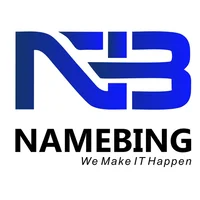
There are 84 Companies in Pune
that provide Angular Development Services!
Pune is an important IT hub in India, with multiple national and international companies that have headquarters and offices in the region. On its turn, the massive presence of IT companies creates a good environment for young professionals that aim for an IT career, making the city one of the largest IT job providers in India.
Discover Top IT Companies in Pune specialized in Angular and other related services. Find the best IT service providers for your projects.
Angular (formerly AngularJS) is a popular open-source web application framework maintained by Google and a community of developers. It's used for building dynamic, single-page web applications (SPAs) and web-based applications in general. Angular provides a structured and organized way to create complex web applications by extending HTML with additional features and enabling the development of interactive, responsive, and maintainable front-end web interfaces.
Handpicked companies • No obligation to hire • 100% risk-free
Featured Companies in Pune
This month, the following Angular Development companies managed to provide an outstanding service and support. It's worth taking a look.
Vinsys ISO certified globally acclaimed individual and corporate training provider legacy of empowering professionals. Award Wining Trainers .
Top Certified Hubspot Provider | Salesforce Crest (Gold) Partner | IT Staff Augmentation | Web and App Development
Explore Top Angular Development Companies in Pune
Techgropse is a leading Mobile App and Web Development Company, dedicated to turning innovative ideas into remarkable digital solutions. 500+ Clients
Your Programming Partner
Mobile app Development | Website development
Leading IT service provider with over 8+ years of experience in Custom Software Development, Mobile App Development, and Web Development.
Where Concept changes into Reality
Kodesoft Technologies: Crafting standout web and mobile experiences to bring your vision to life with innovation and precision.
🚀 ITvia Data Solutions – Where Ideas Become Intelligent Software. Custom Software Solutions | Built to Fit Your Business and Fuel Your Growth
Graphinet specializes in crafting bespoke website & digital solutions that resonate with your brand's vision.
Services:
Experience Excellence with Teqrox solutions, we offer IT Services and consulting. You take care your business we take care of your Technology Growth.
Where Expectations Meet Promises
We are Haraay! We are here to create, to play, to be the curious ones, to connect the dots, to think and breathe design, to be strategists, Identity.
Services:
See Beyond, Rise Above
Dnyanvi Infotech specializes in web development, app development, digital marketing, and graphic design, delivering tailored digital solutions.
Services:
HoriZayn is a leading digital marketing agency in Pune, offering SEO, social media, PPC, and branding solutions for businesses.
Namebing Solution LLP is an IT company specializing in Website Development, Mobile Apps, Digital Marketing, and Yardi Support for Global Clients.
Services:
Notamedia is a web development and IT services company established in 2004 in Moscow (Russia), with an international branch in South East Asia. We spe...
Services:
Nimap Infotech is a leading firm in IT Outsourcing and Software Development in India. We provide On-Demand software developer within 1 hour.
Artificial Intelligence and Software Development Services Company
MasterMind Web Developers – Pune’s leading digital marketing agency for web design, social media, PR, branding, and e-commerce marketing.
Services:
Welcome to Techcraftery, your premier destination for comprehensive business consultation and cutting-edge digital marketing solutions in Pune.
Filter Angular Development Companies in Cities near Pune
Dive deeper and find the company you need close to you or, from a specific city you prefer. Some of the best companies come from smaller places
Find more Angular Development companies around the world
TechBehemoths is the world's most advanced and user-friendly platform to match IT Companies with real clients without hustle.
The ICT Industry In Pune: Companies & Performance
Pune is an important IT hub in India, with multiple national and international companies that have headquarters and offices in the region. On its turn, the massive presence of IT companies creates a good environment for young professionals that aim for an IT career, making the city one of the largest IT job providers in India. Additionally, Pune authorities invested in considerably large Special Economic Zones which is estimated at around $9.2 billion. Currently, the city has an estimated number of employees at more than 70,000 in the IT sector.
Like all major cities in India, Pune provides both homemade digital services and as well as BPO services. For the second one, what is worth mentioning is that the city is probably the most successful in providing such services.
The connection between the IT industry and real estate is strong and very important, especially to young professionals that choose to relocate to more advanced areas. In these regards, Pune is preferred over Bengaluru due to even more affordable living costs and good conditions. Moreover, Pune has the highest incidence of professionals who start out in rented homes and graduate to purchasing homes in the city later on. Pune’s affordable housing rates are not the only factor at play in this dynamic. The city is also far more attractive in terms of the overall lifestyle quotient it offers, where it once again beats other cities such as Bengaluru or even New Delhi.
The average yearly salary of a web developer in Pune reaches $8600+ which is higher than in other big tech hubs in India, and also makes it 4 times higher than in other industries in the same area. This is why the project can be slightly more expensive, but somehow promise more than others. Pune-based IT companies invest more in marketing and design features and technologies to attract more clients and have a more developed brand culture than other companies from India.
Speaking of companies, if you have in mind working with one of the IT companies in Pune, check out the list from Tech Behemoths and select those that fit you best. You can filter them by focus area, experience, number of employees, and price range.
What is Angular and what are its benefits for your projects?
Angular (formerly AngularJS) is a popular open-source web application framework maintained by Google and a community of developers. It's used for building dynamic, single-page web applications (SPAs) and web-based applications in general. Angular provides a structured and organized way to create complex web applications by extending HTML with additional features and enabling the development of interactive, responsive, and maintainable front-end web interfaces. Here are some key aspects and concepts of Angular:
-
Component-Based Architecture
-
Templates
-
Directives
-
Dependency Injection
-
Services
-
Routing
-
Observable and RxJS
-
Modules
-
Testing
-
Cross-Platform
Angular's structured approach, strong tooling, and vibrant ecosystem of libraries and extensions make it a powerful framework for building modern web applications. It is particularly well-suited for large and complex projects where maintainability and scalability are crucial.
Companies may choose Angular over other front-end frameworks for their projects for a variety of reasons, depending on their specific needs and priorities.
-
Google Backing: Angular is developed and maintained by Google. This association often gives companies confidence in its long-term support, stability, and continuous improvement. Google's involvement is seen as a sign of reliability and commitment to the framework.
-
Mature and Established: Angular has been around for a while and has a strong track record of being used successfully in large-scale enterprise projects. It has a well-defined architecture and best practices, which can be beneficial for maintaining and scaling applications over time.
-
TypeScript Support: Angular is built with TypeScript, a statically-typed superset of JavaScript. TypeScript provides better tooling, code maintainability, and catches errors at compile time, which can reduce bugs and enhance code quality, making it attractive to companies that prioritize robust code.
-
Full-Featured Framework: Angular provides a comprehensive set of tools, libraries, and features out of the box, including routing, form handling, HTTP client, and more. This can save development time and effort compared to integrating multiple third-party libraries in other frameworks.
-
Two-Way Data Binding: Angular offers powerful two-way data binding, which allows for automatic synchronization between the data model and the view. This feature can make it easier to develop interactive and responsive user interfaces.
-
Large and Active Community: Angular has a large and active community of developers and a wealth of resources, including documentation, tutorials, and third-party libraries. This can be beneficial for finding solutions to common problems and getting support when needed.
-
Enterprise-Ready: Angular provides features like dependency injection, modularity through modules, and a strong emphasis on testability. These characteristics are well-suited for building robust and maintainable enterprise-level applications.
-
Strict Coding Standards: Angular enforces a set of coding standards and best practices, which can lead to more consistent and readable code. This can be important for companies with multiple developers working on the same codebase.
-
Cross-Platform Development: Angular can be used for building both web and mobile applications. Companies looking to develop applications for multiple platforms may choose Angular for its ability to share code between web and mobile apps using technologies like NativeScript or Ionic.
-
Integration with Backend Technologies: Angular can easily integrate with various backend technologies and APIs. This makes it suitable for projects where the front end needs to communicate with different types of server-side applications.
-
Security Features: Angular provides built-in security mechanisms to help prevent common web vulnerabilities like Cross-Site Scripting (XSS) and Cross-Site Request Forgery (CSRF). This can be crucial for projects with high security requirements.
-
Ecosystem and Tooling: Angular has a rich ecosystem of tools, extensions, and IDE support, including Angular CLI for project setup and management. This can streamline development workflows and improve productivity.
Ultimately, the choice of Angular or any other framework depends on the specific project requirements, the development team's expertise, and the company's long-term goals. Companies evaluate various factors to determine which framework aligns best with their needs, resources, and priorities.























